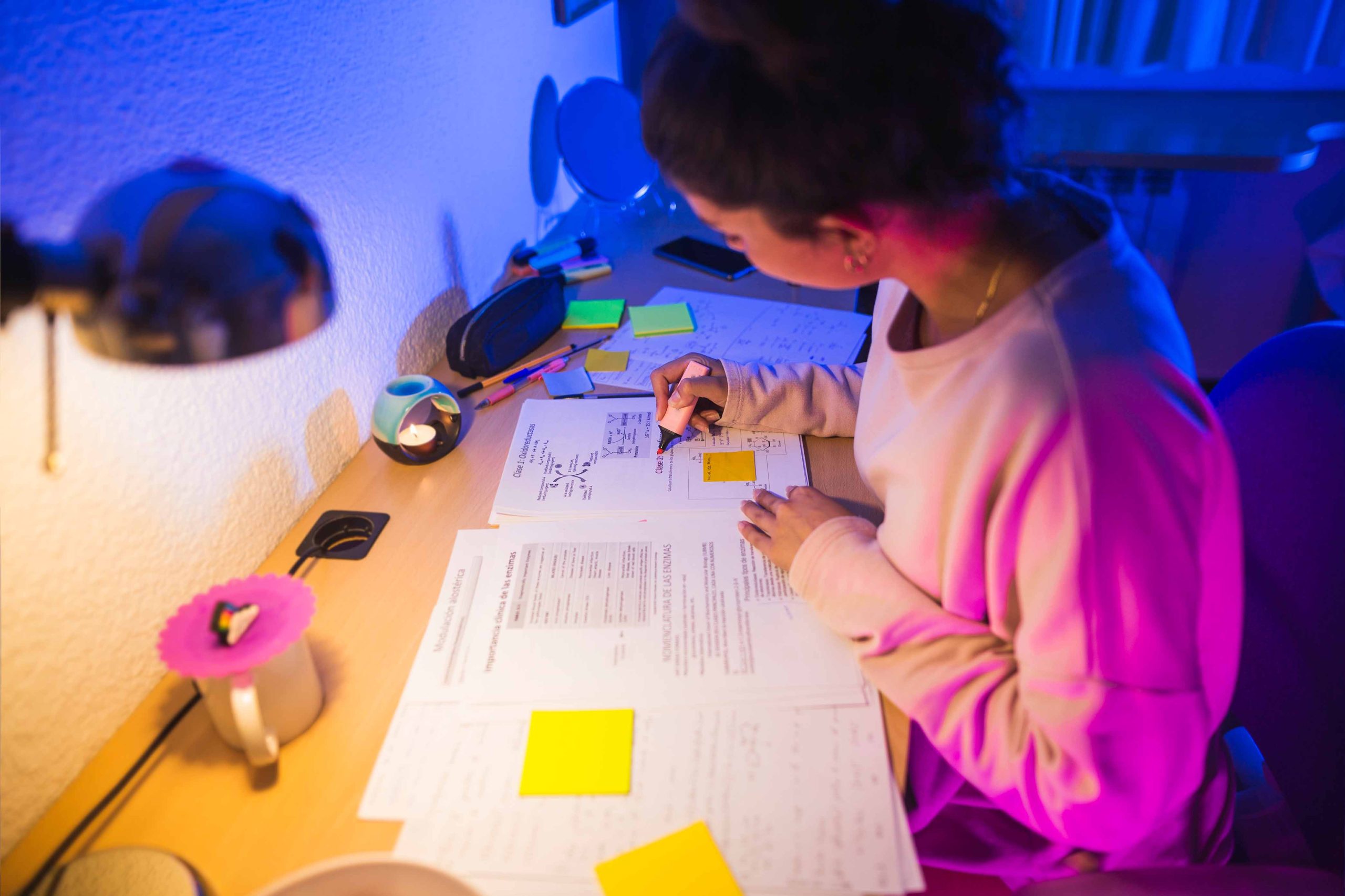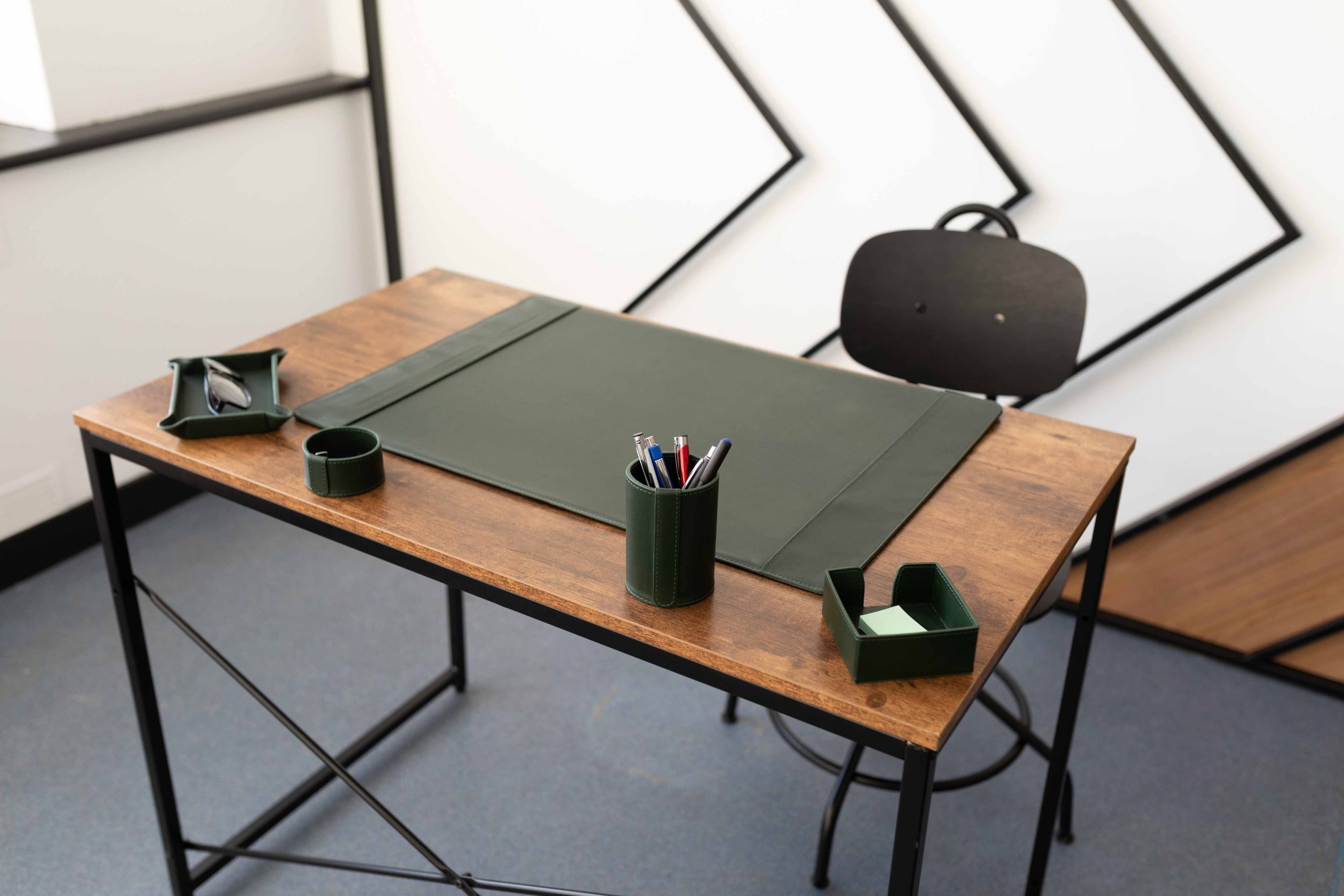How time flies! It seems like only yesterday we were enjoying a dip in the sea with our children and, in the blink of an eye, a new academic year has just started.
First exams will begin in a few weeks and now more than ever we realize how important is to have a study environment that facilitates the learning process. Therefore, throughout the following article, the team of professionals that make up our academic support service, will explain the conditions that a learning environment must meet to ensure a better academic performance.
Before getting down to the business, we need to answer the following question:
Which are the basic pillars that will lead to a successful learning process?
- Organisation.
- Time management.
- Appropriate learning environment.
Let us look at each of them:
Organisation
“External order facilitates internal order”. In other words, when we work in an organised and free of distractions environment, it is easier to focus on the task at hand and to organise our ideas.
Thus, we recommend that, before starting homework or studying a subject, students clean and tidy their room, especially the desk. Having an uncluttered desk and the school supplies available will help them to maintain the concentration for longer periods of time.
If they don’t have all the supplies they need ready, they will constantly have to get up from the chair, thus impairing their sustained attention span and making it difficult to focus on the task.

In addition to these very basic levels of organisation, it is important that they develop increasingly sophisticated skills as they grow up. By “sophisticated” we mean that they require a more advanced level of development of the executive functions. Let us see some examples:
- To organise their notes by category, they need to make use of folders, dividers, plastic sleeves, etc.
- To organise their weekly timetable, they will need to make use of the diary.
- To mentally order the contents of each topic, they will need to learn how to make summaries, diagrams and mind maps.
Time Management
Many children find it difficult to estimate the time required to complete their homework, projects and study a subject. The truth is that, actually, it is an essential skill that is often not given the importance it deserves.
Learning to manage their time better will help them to:
- Turn in assignments on time.
- Increase their autonomy.
- Reduce their stress levels.
- Maintain their achievements.
In fact, more and more schools are taking the initiative of giving each pupil a school diary at the beginning of a new academic year, as well as a school calendar showing the dates of exams and projects that are due. This is a great way to help develop time awareness and anticipation.

Appropriate Learning Environment
Many of you probably remember being scolded by your parents for having a messy bedroom or doing homework with the television on. At the time, we probably did not understand why such details were so important. Now, as adults and parents of our own children, we fully understand their motives.
Nonetheless, there is no need to go back to that time. We can name thousands of examples from daily live in which the work or learning environment plays an essential role in our performance.
For instance, let us think about the reception desk of the company where we work or the library in our neighbourhood. Everything is neatly arranged, each form has its own drawer, each document is stored in a particular folder. All these places share a common feature: they meet some requirements that help to increase concentration, efficiency and thus, favour productivity.
When an environment does not meet these ideal features we, as adults, have a developed ability to constantly redirect the attentional focus to the task, inhibiting irrelevant stimuli. However, children’s brain, which are still developing, have more difficulty in self-regulating, which is why it is so important that external order exists.

What requirements need to meet a suitable learning environment?
- It should always be the same and, if possible, exclusively for him/her. Setting aside a physical space exclusively for studying helps to acquire the habit and improve concentration, because the brain makes this association between place and activity, facilitating orientation to the task.
- Always the same timetable. Having a pre-set study time will help them to create a habit and develop those time management skills we mentioned earlier.
- It must be well lit. Ideally, study in natural light, but when artificial light is necessary, a lamp with a blue bulb of no less than 60 watts is recommended.
- Suitable furniture and supplies. They should have a large desk and a comfortable chair that favours a proper posture. In addition, before starting, all the supplies that are going to be needed should be on the table. In this way, they avoid constantly getting up from the seat and losing the concentration.

- Reduced environmental stimulation. The place chosen should be the one where there is not usually a lot of noise. For example, if the living room is very bright but overlooks a main street with heavy traffic, will not be the right place. On the other hand, if their bedroom has less light but is quieter, we will choose it first.
- Well ventilated and at the right temperature. It is advisable for the study place to have a window to be able to renew the quality of the air every now and then, as well as to maintain a stable temperature of between 20ºC and 22ºC approximately.
Last but not least, we do not want to end this article without mentioning the use of electronic devices. Nowadays more and more schools have adopted what is known as “e-learning”. That is, the use of the internet and electronic devices as a teaching-learning tool, where teachers create a virtual space where they can share documents, assign homework and solve their student’s doubts, without the need to schedule a face-to-face tutorial.
While it is true that this tool is very practical and motivating for pupils, we must take into account the overuse of electronic devices nowadays and the increasing risk of addiction that they entail. We therefore recommend that, at least during study hours at home, access to mobile phones, tablets and other devices should be restricted, except when absolutely necessary.
We at Sinews hope that reading this article has been useful and we encourage you to put all these tips into practice to ensure better academic performance.
Finally, we would like to remind you that, for those students who find it difficult to keep up with the academic pace, our academic support service professionals will be glad to help them in everything they need.
About the author
Alba is a neuropsychologist and coordinator of specialized support services in psychoeducational and speech therapy in schools and homes. When families get in touch with Sinews requesting any of these services, Alba conducts an initial assessment interview to thoroughly understand the situation and assign the most suitable professional for each case. Furthermore, she maintains constant communication with schools, families, and professionals to ensure that progress is favorable and that the set objectives are being achieved. She also oversees the integration of new professionals into a constantly expanding team.
Sinews MTI
Psychology, Psychiatry and Speech Therapy

